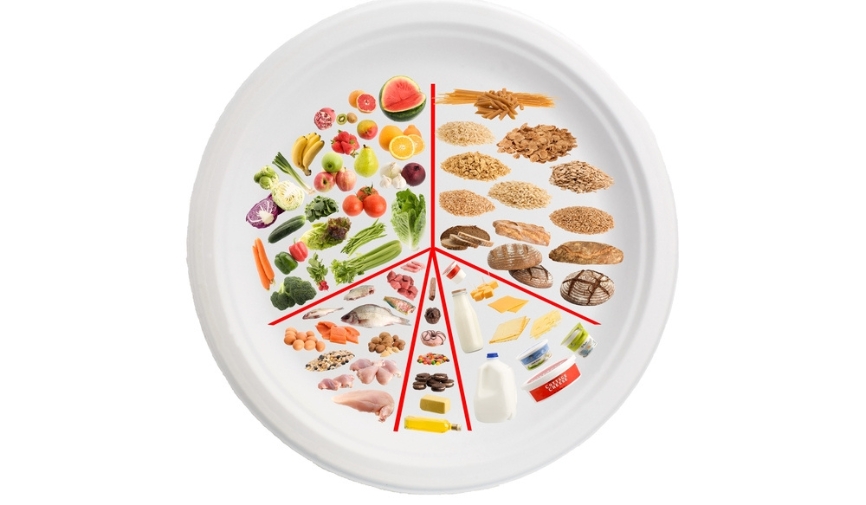The start of a New Year marks a fresh, healthier start for many people. This often takes the form of new exercise regimes, reductions in alcohol consumption and, increasingly, adherence to a plant-based diet. When the ‘Veganuary’ trend began back in 2014, just over 3,000 people took part, which has risen to a staggering 629,000 participants in January 2022.
But this move away from meat and dairy isn’t only a New Year fad. Over the last eight years, the number of vegans in the U.K. has increased by over 500% from 150,000 to breaking the 1 million barrier last year. While most people rate prevention of animal exploitation as the most important reason for reducing their meat and dairy intake, the arguments behind the health benefits of a plant-based diet are gaining momentum too.
With that in mind, we thought we’d explore whether or not reducing meat and dairy intake improves heart health and look into the effect a plant-based diet can have on your well-being.
Does eating meat increase the risk of heart disease?
A 2020 study published in JAMA Internal Medicine investigated whether there were health benefits to reducing meat intake by analysing six observational studies and using self-reported data like surveys and questionnaires. The researchers from Northwestern and Cornell universities in the USA found that a higher intake of processed meat, unprocessed red meat, or poultry was linked with a slight increase in the risk of coronary heart disease, stroke, heart failure, and death related to heart and circulatory disease.
The reasons behind this are associated with the high content of saturated fat and salt in these foods. High intakes of sat fat drive up levels of dangerous low-density lipoprotein (LDL) cholesterol, while large salt consumption raises blood pressure, both known to impact heart health negatively.
A less obvious impact that meat consumption, specifically red meat, can have on heart health is the relatively high-calorie value of meat compared to plant-based alternatives. Calories are not inherently a bad thing. They keep our body functioning and give it the energy to carry out our daily lives; however, excess calorie intake can be a significant contributor to obesity, which, in turn, has dangerous implications towards heart health.
Dairy and heart health
A 2018 study published in Lancet asked over 135,000 people in 21 countries to complete a food diary at the beginning of the study before monitoring their health for almost a decade. Throughout the nine-year study period, 3.5% of participants with the highest intake of dairy (more than two daily servings) developed major cardiovascular disease compared with 4.9% of those who consumed no dairy. The high-intake cohort also benefited from a lower rate of stroke (1.2% vs 2.9%) and death (3.4% vs 5.6%) than the dairy-free group.
While it’s important to remember that observational studies show us correlations, not cause and effect, the results do seem to support current advice that dairy can be consumed as part of a balanced diet to reduce the risk of heart and circulatory diseases. These findings were again supported by a 2021 study in PLOS medicine that conducted blood tests in 18 studies across the USA, UK, Denmark and Sweden.
In this test, unlike the Lancet study, researches adjusted for other risk factors like smoking, drinking alcohol and physical activity levels. The findings showed that those with the highest levels of dairy-associated fatty acids had the lowest risks of heart and circulatory diseases.
A balanced diet
It’s clear, then, that there are benefits to reducing your meat intake, especially red meat while consuming dairy can positively impact heart health. According to the British Heart Foundation, engaging in a healthy and sustainable diet is the most important thing. Untenable fad or crash diets rarely provide the necessary nutrients and can harm cardiovascular health. By ensuring you adhere to a healthy mixture of foods, such as those shown in the Eatwell Guide, you give your cardiovascular system the best chance of healthiness.
Reducing your red meat usage in line with the NHS guidelines of a 70g daily consumption could be a good start in progressing towards a healthy meat intake. Note that this is an average, and you can space your meat intake around meat-free or low-meat days to help this average consumption become more attainable and sustainable.
Alternatively, you can achieve the same goal by swapping out meat aspects of your meals for meat-free options. For example, why not consider moving to fish or vegetarian sandwich fillings such as tuna or cheese? Or you could replace meat content in stews and curries with vegetables, beans and pulses. While it’s true that dairy consumption can be beneficial for heart health, as with meat, it’s important to keep track of consumption. For example, most cheeses, including brie, stilton, cheddar, Lancashire and Double Gloucester, fall above the 17.5g per 100g benchmark that is considered a high-fat food.
To reduce this impact on your health, consider lower-fat cheeses such as mozzarella, feta or cottage cheese. Or, if you’re using cheese to flavour a sauce or dressing, a smaller amount of a stronger-flavoured cheese could help. Milk can also contain high-fat levels. While young children benefit from the calories and vitamins in milk, it can be beneficial for older children and adults to choose lower-fat milks.
WEL Medical is serious about heart health
Here at WEL Medical, education around heart health is a cornerstone of our ethos. We believe passionately in educating our customers and the public to live heart-healthy lives and in the effective and safe use of our life-saving products.
Whether it’s tips on leading a healthy lifestyle, how to access CPR training and equipment, or access to the latest information on using and maintaining defibrillators, WEL Medical can offer you the support you need.
Take a look at the blogs below to find out more, or feel free to contact us with a more specific query.








